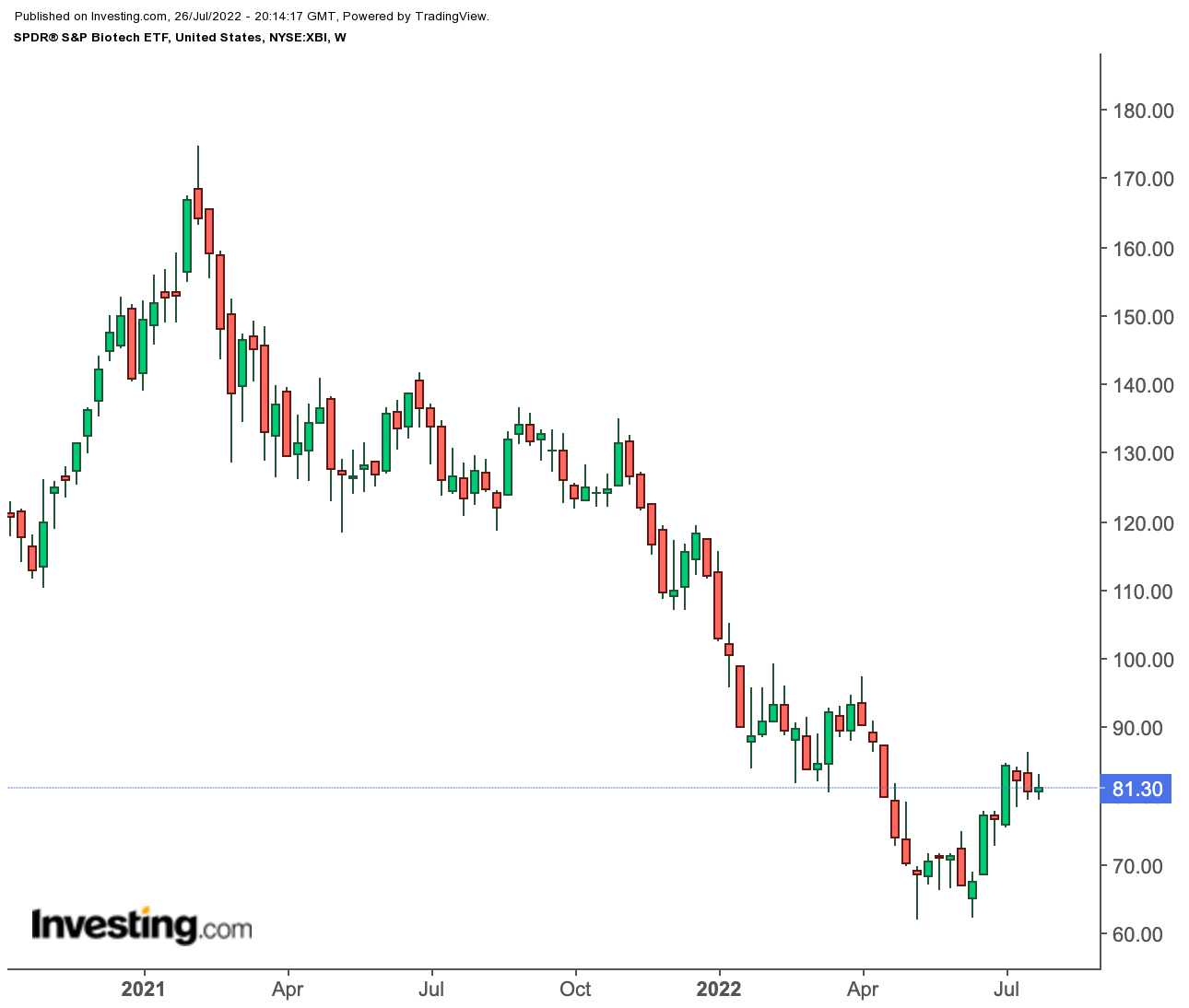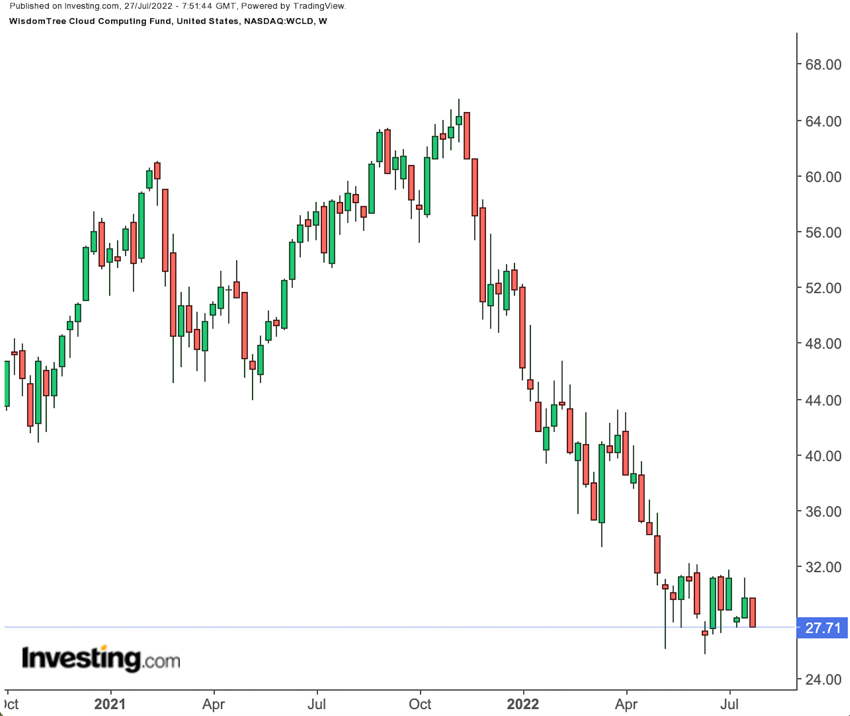- Sharp Wall Street selloff offers better investment entry point
- Markets watching Federal Reserve’s policy meeting
- Biotech and cloud computing ETFs could offer upside
Despite sharp declines in share prices, Wall Street still keeps a close eye on high-growth stocks and exchange-traded funds (ETFs) that invest in them.
While investors brace for an expected 0.75 percentage point rate hike at the Federal Open Market Committee (FOMC) meeting today, some analysts argue the increase could be as high as 100 basis points.
The Fed’s statement is expected to set the course for further hikes over the rest of the year. If the markets sense central bankers believe US inflation is under control, tech and other growth shares could start to shine again.
Here are 2 growth funds that could appeal to investors in Q3.
1. SPDR S&P Biotech ETF
- Current Price: $81.30
- 52-Week Range: $61.78 - $136.61
- Expense Ratio: 0.35% per year
Research from BlackRock suggests healthcare stocks could do well in the coming months. Analysts also point out that in the post-COVID period, innovation in biotechnology should continue with a specific focus on the “treatment of cancer, immunology, genetic and neurodegenerative diseases.”
By the end of the decade, the size of the global biotechnology market is forecast to approach $3.9 trillion. Therefore, Wall Street pays attention to biotech shares.
Many readers know that:
“Biotechnology therapies, or biologics, are based on biology and harness cellular and biomolecular processes. They include vaccines, blood and blood components, allergenics, somatic cells, gene therapy, tissues and recombinant therapeutic proteins.”
Our first fund, the SPDR® S&P Biotech ETF (NYSE:XBI) gives access to 135 biotechnology stocks. It was first launched in January 2006, and net assets stand at $7.6 billion.
XBI, which tracks the returns of the S&P Biotechnology Select Industry, is an equal-weighted ETF. During the current earnings season, XBI is likely to be less volatile than a cap-weighted fund like the iShares Biotechnology ETF (NASDAQ:IBB).
Around 15% of XBI is currently in the top 10 biotech names, whose market caps range from around $1.0 billion to $5.2 billion. Among them are Beam Therapeutics (NASDAQ:BEAM), which focuses on genetic medicines; Twist Bioscience (NASDAQ:TWST), which manufactures synthetic DNA-based products; clinical-stage biopharma name Fate Therapeutics (NASDAQ:FATE); and genome editing company Intellia Therapeutics (NASDAQ:NTLA).
XBI saw a 52-week high in September 2021. But since then, many biotech shares have come under pressure, and the ETF has declined around 36% over the past year and 27.3% since January.
The fund’s trailing price-to-earnings (P/E) and price-to-book (P/B) ratios stand at 11.65x and 3.47x. We also remain constructive on the biotechnology sector, and most shares now offer solid fundamental value.
2. WisdomTree Cloud Computing Fund
- Current Price: $27.71
- 52-week range: $25.66 - $65.51
- Expense ratio: 0.45% per year
Recent metrics suggest between 2021 and 2026, the global cloud computing market should grow at a compound annual growth rate (CAGR) of well over 16% and reach close to $950 billion. Analysts further highlight cloud computing “offers flexibility, data recovery, little to no maintenance, easy access and a higher level of security.”
Our second fund, the WisdomTree Cloud Computing Fund (NASDAQ:WCLD), currently invests in 75 global companies in the sector. It began trading in September 2019, and net assets stand at $689 million.
Over 90% of the businesses are based in the US. The rest come from Israel, Australia, China, Canada, and the UK.
Almost a fifth of the portfolio is in the top 10 stocks. They include cybersecurity specialists CrowdStrike (NASDAQ:CRWD) and Qualys (NASDAQ:QLYS); online education platform 2U (NASDAQ:TWOU); cloud software services group Box (NYSE:BOX); and Paycom Software (NYSE:PAYC), which provides human capital management (HCM) solutions.
Information technology stocks have the largest slice, with over 90%. Next come health care, communication services, and consumer discretionary.
Since the start of the year, WCLD has declined more than 46.5%. P/B and price-to-sales (P/S) ratios are 5.14x and 5.55x, respectively. Readers whose portfolios can handle short-term volatility may find value in cloud computing shares around these levels.
Disclaimer: On the date of publication, Tezcan Gecgil, Ph.D., did not have any positions in the securities mentioned in this article.
